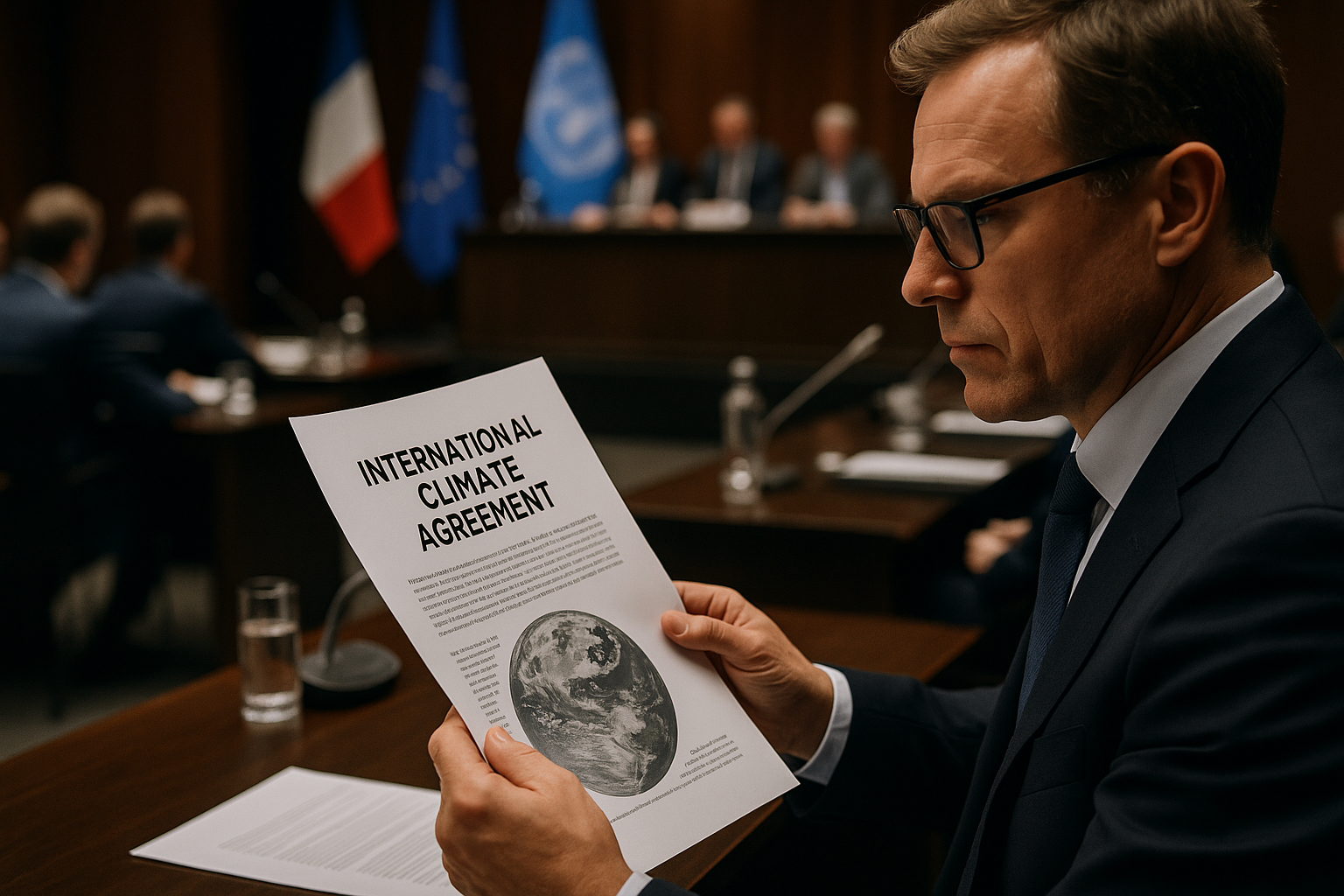An Examination of the Impact of International Climate Change Laws on National Policy
Introduction: Climate change is a global crisis with far-reaching implications. International laws and agreements formulated to tackle this issue have a significant impact on national policies. This article delves into the intersection of international climate change laws and their influence on domestic policy.

The Genesis of International Climate Change Laws
The journey of international climate change laws began with the United Nations Framework Convention on Climate Change (UNFCCC) in 1992. The treaty aimed to stabilize greenhouse gas concentrations in the atmosphere at a level that would prevent dangerous human interference with the climate system. Subsequent agreements, such as the Kyoto Protocol and the Paris Agreement, further developed international legal frameworks to address climate change.
International Climate Change Laws Today
Today, international climate change laws cover a broad spectrum of issues, from mitigation and adaptation measures to technology transfer and financial support. The Paris Agreement, for instance, requires all participating nations to regularly report on their emissions and efforts to reduce them. This level of transparency holds countries accountable and influences their domestic environmental policies.
The Influence on National Policies
International climate change laws have a profound impact on national policies. Countries often formulate their environmental regulations to align with international commitments. For instance, the European Union’s ambitious Green Deal, aiming for carbon neutrality by 2050, is a reflection of its commitments under the Paris Agreement. Similarly, other nations have also revised their domestic policies to meet their international obligations.
Implications and Impact on Society
The influence of international climate change laws on national policies has a significant societal impact. These policies can stimulate green economic growth, create new jobs, and promote sustainable living. However, they may also lead to transitional challenges, such as shifts in labor markets and increased costs for some sectors. It is vital for governments to balance these impacts to ensure a just transition to a low-carbon economy.
The Future of International Climate Change Laws
The future of international climate change laws depends on the continued cooperation and commitment of nations. With the looming threat of climate change, these laws will continue to evolve and exert influence on national policies. There is a growing trend towards more stringent legislation, reflecting the urgency of the climate crisis.
In conclusion, international climate change laws play a pivotal role in shaping national policies. Their impact extends beyond government corridors to influence the lives of ordinary citizens. As we move towards a future threatened by climate change, the importance of these laws will only increase.




